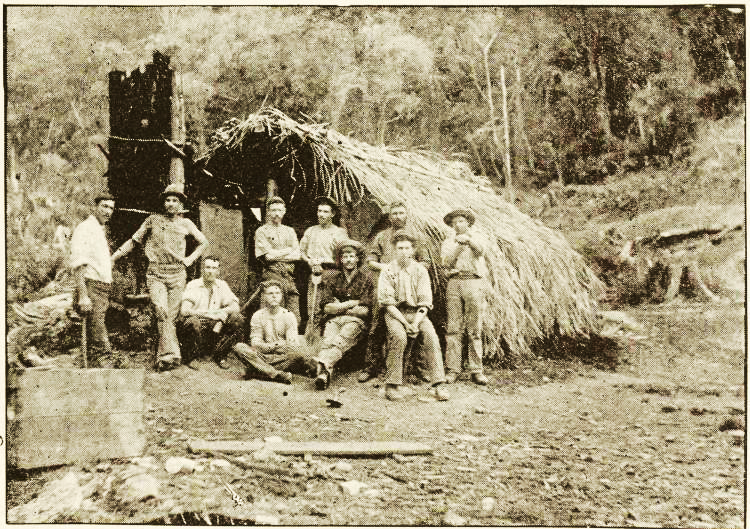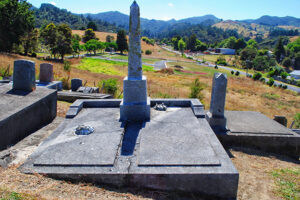As part of a Valley Profile series, MEGHAN HAWKES explores our local history by seeking out stories of life and death in the Thames Valley.
William Booker was keen to have a fossick for gold up the river after the midday meal. He was one of a mining party camped near Mackaytown on the Ohinemuri River in March 1875.
The 24-year-old, from Riccarton, Christchurch, had only been in the North Island a few days, having arrived with his mate John Morris.

Their claim was close to one pegged out by George Clarkson and William Cobley – men from the party who had discovered gold at Thames. They were set on finding another rich reef, and William Booker may have hoped some of their earlier good fortune would rub off on him.
After dinner the men had a smoke and then headed to work, except for William who followed soon after and asked John Morris for his telescope. John told him it was in the swag and William, puffing on his pipe, went up the hill for it, and then just vanished.
Once he was missed a search was made but no clue could be found as to where he was. After two days of fruitless looking a party of about 20 more men was got together at Mackaytown, including four of the Armed Constabulary. James Morris, who came north with William, was very upset. He was convinced he had fallen into a creek but despite searching every creek and gully until nightfall there was no trace of William.
The next morning at Mackaytown a bellman walked round ringing for more volunteers and between 70 and 80 men turned out. A systematic method of work and signals, and a point of rendezvous were agreed on. They crossed the river, and began carefully searching through the unforgiving terrain. A gunshot signalled the find of William’s hat. Ti-tree saplings were used to drag the creek. At Fern Flat, about two miles above Mackaytown, the body of William was finally found in a deep waterhole.
On the body was a watch (which had stopped at 1.25), a few pound notes, three pennies, and receipted bills from Riccarton, Canterbury, a knife, tobacco and a pipe case. A stretcher was improvised, and the body was carried into Mackaytown followed by over 70 weary men.
The efforts of the searchers were praised, particularly volunteers who dived into the creek until they were nearly perished with cold. The Clarkson and Cobley party were amongst the most tireless in the search.
At the inquest it was concluded William got into thick bush and fell over a precipice into the river and drowned. It seemed the accident happened only a few minutes after his mates resumed work.
His watch must have stopped at 1.25pm. His pipe was missing; most likely he was smoking it when he fell from the rock.
William, warned an Auckland Star correspondent, was only the first victim that year in the search for gold, in the coming winter, with its swollen rivers and long dark nights many more catastrophes would be recorded.
William is buried in an unmarked grave at Shortland cemetery, but at Riccarton is remembered on a family headstone which documents further Booker family tragedies following his death. His father died the year after him after being thrown from a trap, followed two months later by his brother who, while attempting to save a horse, also drowned.




